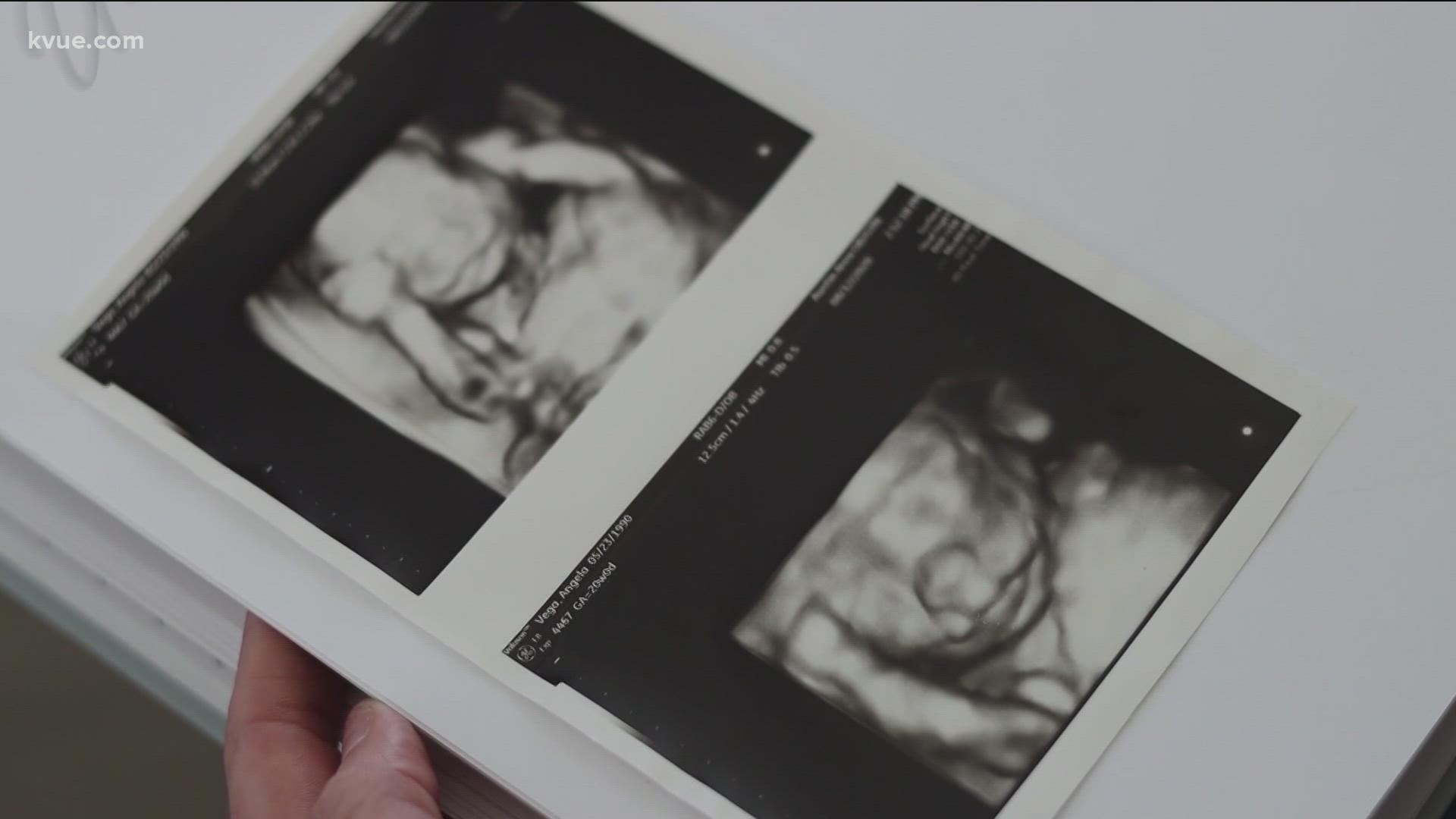AUSTIN, Texas — The U.S. Supreme Court is hearing a case from Mississippi about an abortion ban, and may also overturn Roe v. Wade, the landmark 1973 ruling that declared a nationwide right to abortion.
The Mississippi law, which passed through the state's legislature in 2018, would ban abortions after 15 weeks of pregnancy, well before viability. The Supreme Court has never allowed states to ban abortion before the point at roughly 24 weeks when a fetus can survive outside the womb.
In September, a law more restrictive than Mississippi's went into effect in Texas: Senate Bill 8, the "Texas Heartbeat Act." That law bans abortions once cardiac activity is detected in a fetus, which is typically at around six weeks gestation and before many women learn they are pregnant. The only exception is for medical emergencies.
The law is not enforced by the State of Texas but rather allows almost anyone, anywhere, to sue a doctor who performed an abortion or anyone who "aides and abets" a woman in getting an abortion and recover $10,000. Persons who rape or commit incest against a woman and cause the pregnancy are the only ones who cannot sue under the Texas law.
RELATED:
So, how will the justices' decision impact Texas' more restrictive law on abortion?
According to the Associated Press, Mississippi is one of 12 states ready to act almost immediately if Roe v. Wade is overturned. Those states have enacted so-called abortion "trigger laws" that would take effect and ban all or nearly all abortions if the Supreme Court justices overturn Roe v. Wade.
Texas is one of them. If the Supreme Court reverses, "wholly or partially," Roe v. Wade, Texas has a "trigger law" that would take effect 30 days after the court's ruling.
According to the language outlined in House Bill 1280, abortion in the State of Texas would be prohibited and criminalized unless the mother's life is in danger. Anyone who violates this trigger law will face a second-degree felony and a civil penalty of at least $100,000.
Shortly after SB 8 went into effect, court filings showed the deepening impact a near-total ban on abortion was having. One Texas woman traveled nearly 1,000 miles to Colorado for an abortion. Others are driving four hours to New Mexico. One network of clinics in Texas, which performed more than 9,000 abortions in 2020, said it has turned away more than 100 patients since Sept. 1.
Meanwhile, there are legal challenges to Texas' current law, SB 8, that are still pending. The Supreme Court heard arguments over how the Texas law is enforced in November but has yet to issue an opinion.
PEOPLE ARE ALSO READING:

